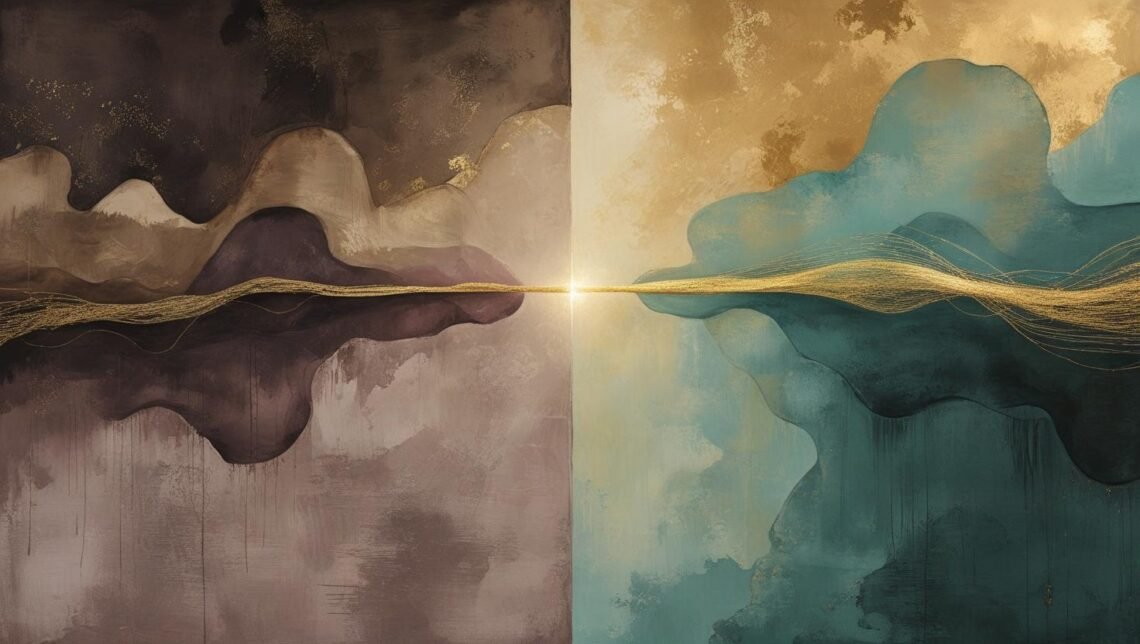To be human is to live stretched between two horizons. Behind us lies the vast country of the past, filled with memories, regrets, and the countless moments that have shaped who we are. Ahead of us lies the undiscovered land of the future, heavy with our hopes, anxieties, and projections. And in between, like a narrow bridge suspended over a gorge, lies the present, fragile and fleeting, the only place where life can actually be lived.
The past is heavy because it clings. We carry it not only in memory but in the body, in habits, and in the stories we tell about ourselves. There are joys that warm us when recalled, sorrows that ache like old wounds, and mistakes that haunt us more than we care to admit. The past is a companion we cannot dismiss, for it has made us who we are. To despise it would be to despise our own becoming.
Yet to live solely in the past is to mistake the echo for the song. Nostalgia, though sweet, can entrap us. Regret, though honest, can paralyse us. The gift of the past lies not in reliving it but in learning from it, drawing from its depths the wisdom to live more truly now.
The future, on the other hand, does not weigh us down so much as it pulls us forward. It beckons with promise and possibility. We dream of what we might become, of the good we might do, of the joys yet to be discovered. But the future also unsettles us, for it is unknown. It is where our fears gather, where we imagine failures, losses, and endings. Hope and dread are twins born of the same womb, and both belong to the future.
We are tempted to flee into the past when the future feels overwhelming, or to lunge into the future when the past feels unbearable. Either way, we risk abandoning the slender bridge of the present. And yet it is only here, in this present moment, that grace meets us. The past is beyond our grasp, the future beyond our reach, but the present is a sacrament given into our hands.
The difficulty, of course, is that the present is never pure. It is always tinctured with memory and expectation. Even as we sit quietly, echoes of the past whisper in our minds, and shadows of the future creep into our thoughts. To be human is to carry both weight and pull. The challenge is not to banish them but to live faithfully within their tension.
Perhaps the task is to hold the past with gentleness, acknowledging its lessons without becoming its prisoner. To honour the future with courage, preparing for it without surrendering to fear. And to treat the present not as a thin sliver caught between, but as the meeting place of eternity and time, where the threads of memory and hope are woven together into meaning.
Religious traditions have long known this truth. In Christian prayer, the Eucharist gathers past, present, and future into a single act of remembrance and anticipation. In Jewish ritual, the telling of the Exodus is not merely about what once happened, but about what is happening now. In Buddhist mindfulness, the present is not divorced from past and future but held as the field where they are transformed.
The weight of the past need not crush us, and the pull of the future need not scatter us. They can, instead, remind us of our place in the great arc of time—that we come from somewhere, and we are going somewhere, and that what we do now matters more than we imagine.
And so we learn to walk the narrow bridge. We carry memory as a guide, not a burden. We hold the future as a promise, not a threat. And in the fragile, fleeting moment called the present, we discover that life, however brief, is wide enough to hold eternity.






You’ve captured the feeling of being caught between two worlds perfectly. It’s so easy to let either regret or hope consume us, but true presence seems to lie in recognizing both the weight of the past and the pull of the future without getting lost in them.